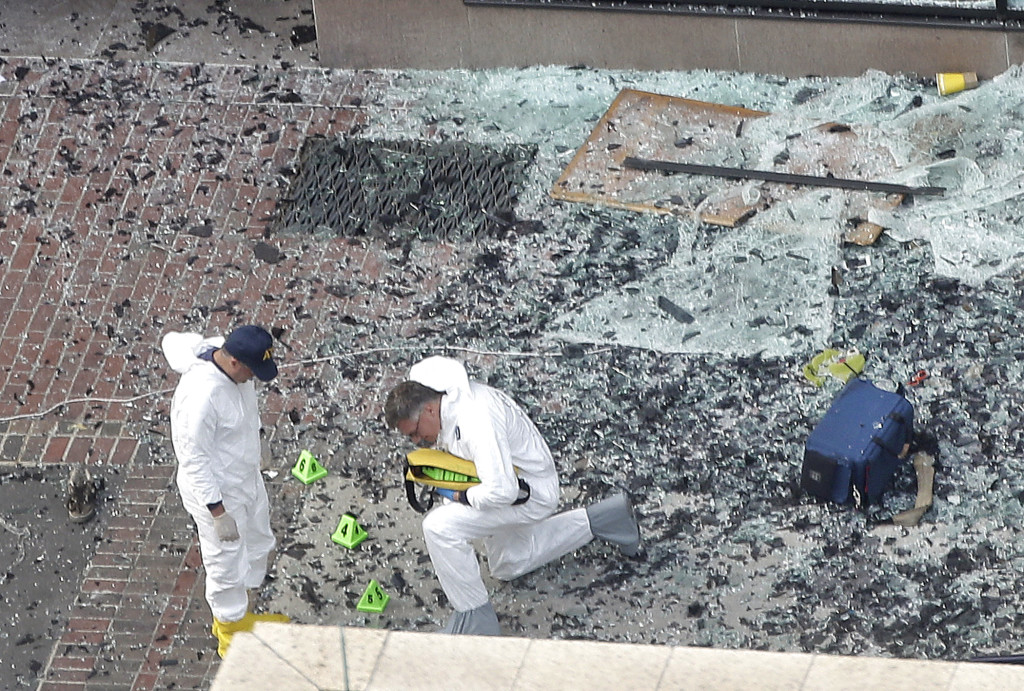Boston Bombing Unknowns Could Also Yield Clues

April 17, 2013
Share
As law enforcement officials sift through thousands of tips and hours of surveillance video from the Boston marathon bombings, conflicting news reports underscore just how difficult it can be to sort fact from fiction.
But Ali Soufan, a former FBI agent who helped investigate the 9/11 attacks, said that what’s not yet known about the attacks can offer clues to the bomber’s identity — in addition to the forensic evidence left behind.
More on FRONTLINE: Former FBI agent Ali Soufan discusses the tactics he used to pursue the 9/11 attackers in The Interrogator. Watch Are We Safer?, a FRONTLINE investigation into the terrorism-industrial complex established after 9/11 to defend against new attacks. And in Top Secret America, explore the largely invisible legacy of the most devastating terror attack on American soil.It’s significant that no one has stepped forward to claim responsibility for the attack, which is unusual for Al Qaeda or other organized terrorist groups, Soufan said. (The Pakistani Taliban actually released a statement denying involvement.)
Domestic terrorists acting alone are more likely to keep silent: Timothy McVeigh, who orchestrated the Oklahoma City bombing, and Eric Robert Rudolph, who set off a bomb at the 1996 Olympics in Atlanta, both stayed mute after the attacks. While McVeigh was apprehended shortly afterward, traced by forensic evidence left behind, it took two years and more bombings before Rudolph was arrested.
Soufan said that bomb placement is also an important indicator: One was placed at the finish line, where there would be lots of cameras. It was designed more to maim than to kill. “This indicated the group wants a lot of people watching rather than a lot of people dying. They want to make some political statement,” he said.
The forensic analysis will yield much of the evidence, Soufan said. But while pressure-cooker bombs have been found in Pakistan, India and Afghanistan, it doesn’t appear to be exclusively an Al Qaeda technique. “Everything points to foreign and domestic,” he said. “Terrorist groups learn from each other, and they copy each other.”
What’s different about the attack: This is the first post-9/11 bombing in the U.S., which Soufan said gives investigators a considerable advantage. When the Oklahoma City bombing happened, “terrorism wasn’t part of the vocabulary.” And of course, after 9/11, it became clear that there were major gaps in information-sharing among law enforcement agencies.
Today, officials have stepped up their coordination through Joint-Terrorism Task Forces that have thwarted several would-be attackers on U.S. soil, such as the 2010 attempted bombing in New York’s Times Square. “This is not a time to test the system,” he said. “The system has already been tested.”

Latest Documentaries
Explore
Policies
Teacher Center
Funding for FRONTLINE is provided through the support of PBS viewers and by the Corporation for Public Broadcasting, with major support from Ford Foundation. Additional funding is provided the Abrams Foundation, Park Foundation, John D. and Catherine T. MacArthur Foundation, Heising-Simons Foundation, and the FRONTLINE Trust, with major support from Jon and Jo Ann Hagler on behalf of the Jon L. Hagler Foundation, and additional support from Koo and Patricia Yuen. FRONTLINE is a registered trademark of WGBH Educational Foundation. Web Site Copyright ©1995-2025 WGBH Educational Foundation. PBS is a 501(c)(3) not-for-profit organization.



















